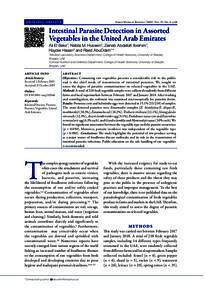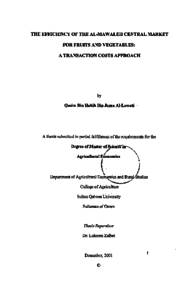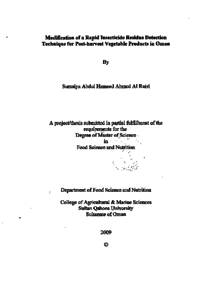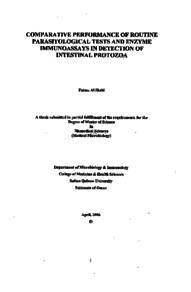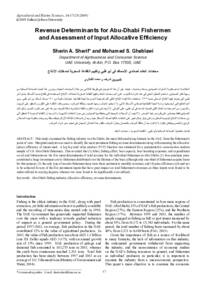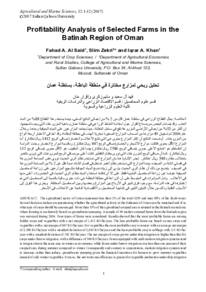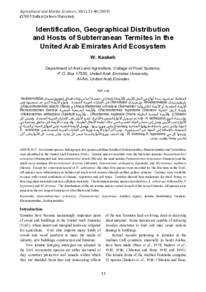وثيقة
Intestinal parasite detection in assorted vegetables in the United Arab Emirates.
المعرف
DOI 10.5001/omj.2020.46
المساهمون
الناشر
Oman Medical Specialty Board.
ميلادي
2020-05
اللغة
الأنجليزية
الملخص الإنجليزي
Objectives: Consuming raw vegetables presents a considerable risk to the public
and is the chief mode of transmission of intestinal parasites. We sought to
assess the degree of parasitic contaminations on selected vegetables in the UAE.
Methods: A total of 218 fresh vegetable samples were collected randomly from different
farms and local supermarkets between February 2017 and January 2018. After washing
and centrifugation, the sediment was examined microscopically for parasitic forms.
Results: Protozoa cysts and helminths eggs were detected in 15.1% (33/218) of samples.
The most detected parasites were Entamoeba complex (E. histolytica/E. dispar/E.
moshkovskii) (30.3%), Entamoeba coli (18.2%), Trichuris trichiura (12.1%), Strongyloides
stercoralis (12.1%), Ascaris lumbricoides egg (9.1%), Endolimax nana cyst and Enterobius
vermicularis egg (6.1% each), and Giardia lamblia and Hymenolepis nana (3.0% each). We
found no significant association between the vegetable type and the parasite occurrence
(p > 0.050). Moreover, parasite incidence was independent of the vegetable type
(p > 0.050). Conclusions: The study highlights the potential of raw produce serving
as a major source of foodborne disease outbreaks and its role in the transmission of
intestinal parasitic infections. Public education on the safe handling of raw vegetables
is recommended.
المجموعة
URL المصدر
zcustom_txt_2
Al-Bakri, Ali, Hussein, Nabila M., Ibrahim, Zeinab Abdallah, Hasan, Hayder, & Abu Odeh, Raed (2020). Intestinal parasite detection in assorted vegetables in the United Arab Emirates. Oman Medical Journal, 35 (3), e128 [1-5].
قالب العنصر
مقالات الدوريات

